What to know
- Diseases can spread between people and wild animals.
- Getting too close to wild animals can result in injury to you or the animal.
- Always enjoy wildlife from a distance.
- Don't keep wild animals as pets.
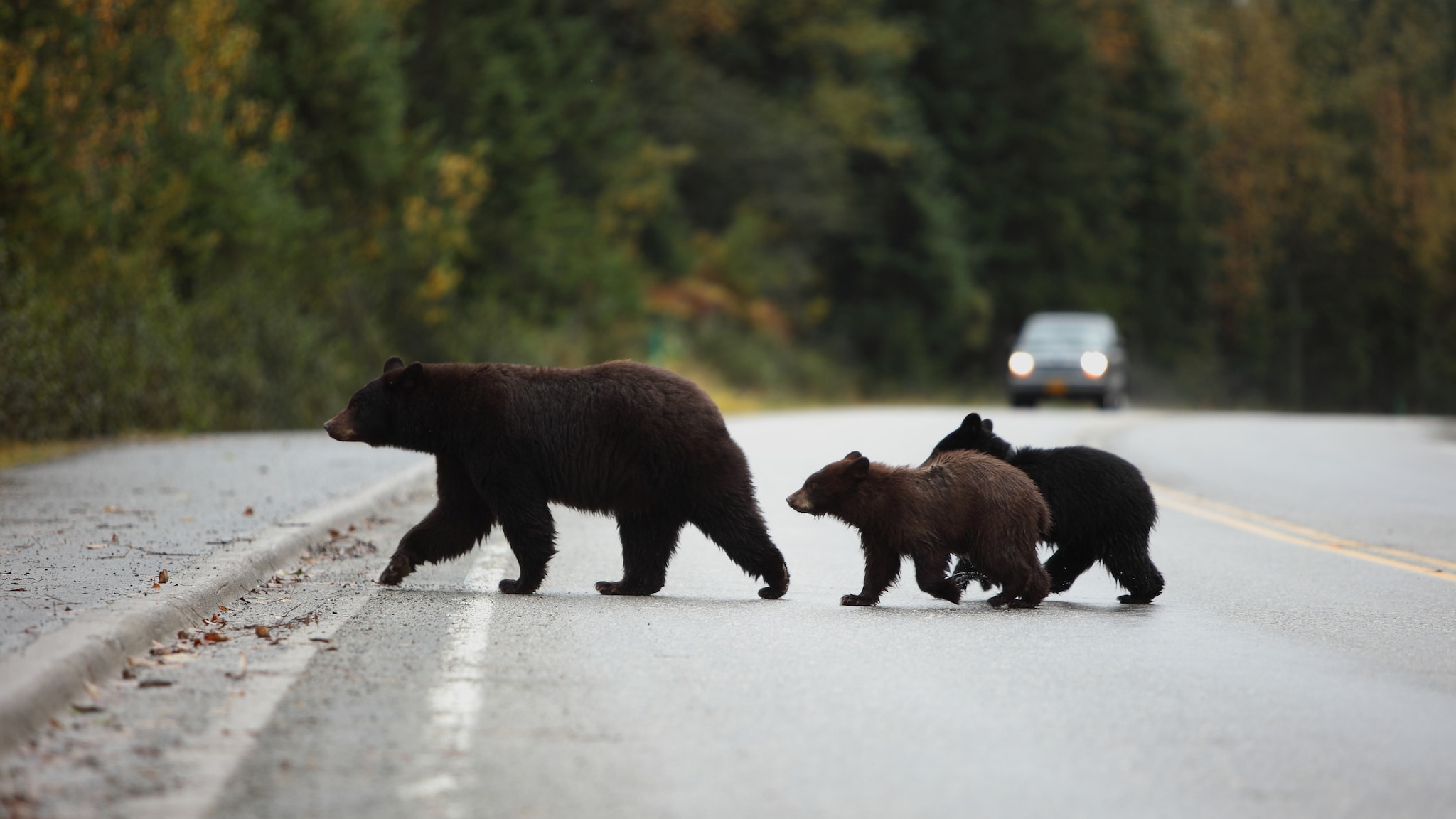
Overview
Wildlife are undomesticated animals living in nature. Wildlife have countless benefits for the ecosystem and for our health and wellbeing, including pollinating our food, controlling pests, and being a source of beauty and inspiration. Seeing wildlife while outside can be a fun and educational experience, and spending time outside in nature can have health benefits. However, it's important to know how to interact with wildlife safely to reduce your risk for certain injuries or illnesses. This also helps keep wildlife safe and healthy.
Wildlife may look cute or seem friendly, but they should always be enjoyed from a distance. Getting too close to wildlife may cause some animals to abandon their young, stop eating, or injure people or pets out of fear. Wildlife can also get sick from or have diseases that are harmful to people and pets. People and pets can spread diseases to wildlife, too. The best ways to keep yourself, your pets, and wildlife healthy are to keep a safe distance and wash your hands after being outdoors. Also, wildlife should never be kept as pets.
Diseases
Common diseases that wildlife can spread are listed below:
- Aeromoniasis
- Anthrax
- Racoon Roundworm (Baylisascaris)
- Botulism
- Bovine tuberculosis
- Brucellosis
- Cryptococcosis
- Dermatophilosis (Lumpy wool, Strawberry foot rot, rainscald, rainrot)
- Echinococcosis
- Giardiasis
- Hantavirus
- Histoplasmosis
- Leptospirosis
- Lymphocytic choriomeningitis
- Mycobacteriosis (Fish Tank Granuloma, Swimming Pool Granuloma)
- Plague
- Rabies
- Rat-bite fever
- Salmonellosis
- Tickborne diseases
- Trichinellosis (Trichinosis)
- Tularemia
- Vesicular stomatitis
- Vibriosis
- West Nile virus
How to stay healthy around wildlife
Even animals that look and act healthy can carry germs that can make people sick.
Wash your hands
- Wash your hands with soap and running water:
- After contact with wild animals or their poop
- After spending time outdoors
- After spending time in places where wild animals might have been (like gardens, sheds, attics, and cabins)
- After touching or cleaning your bird feeder or bird bath
- Before you eat or drink
- After contact with wild animals or their poop
- Supervise handwashing for young children.
- Use hand sanitizer if soap and water are not readily available.
Keep your distance from wildlife
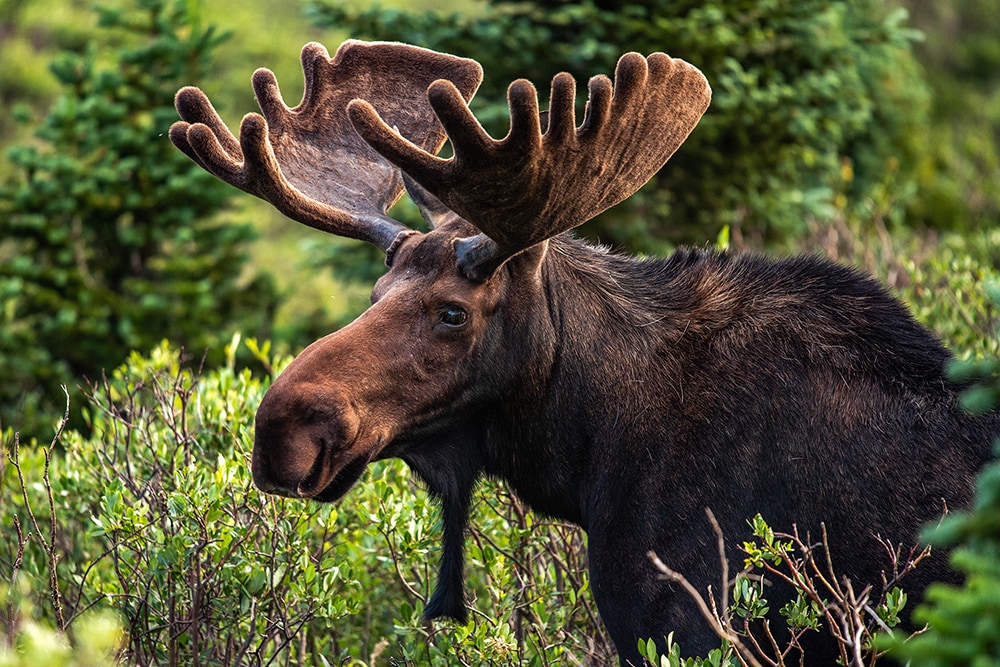
When you get too close to wild animals, you risk hurting yourself or the animal, or even getting a disease. Be aware that even animals that look healthy can spread germs to people and other animals.
Stay a safe distance away
If an animal changes its behavior, you're too close. Stay on trails and follow visitor guidelines, including disposing of trash properly.
Call animal control right away if an animal is acting strangely or out of character.
Don't pet or feed wildlife
Slowly back away if a wild animal approaches you, even if it seems friendly. Feeding songbirds in your backyard is okay. Don't adopt wild animals or bring them into your home, even temporarily.
Teach children never to handle unfamiliar animals, even if they are someone else's pets.
Don't touch dead animals
Don't pick up or touch dead animals with your bare hands. Call animal control to remove any dead animals.
Be prepared before outdoor activities
- Before visiting a new place, learn about its wildlife.
- Be aware of biting insects, spiders, and venomous snakes in the area. Wear EPA-registered insect repellent, bring a first aid kit, and don't travel alone in remote areas.
- Teach kids about outdoor safety around wildlife and while camping.
- Filter and disinfect water before drinking from a stream. Even water that looks clean can be contaminated by wildlife poop.
Hunt safely
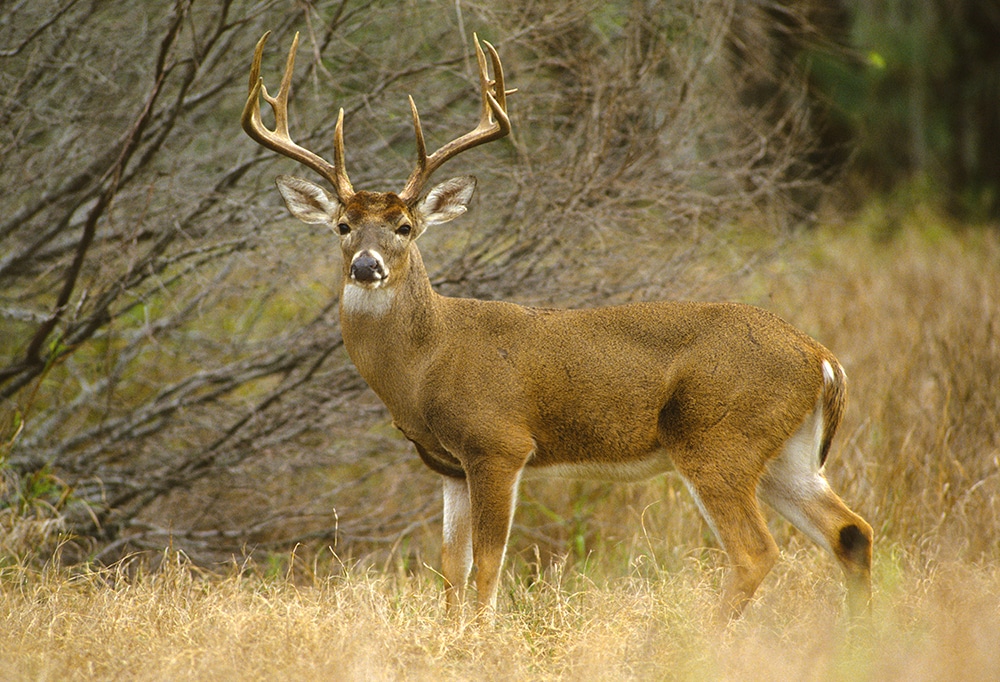
Hunters are at higher risk for certain diseases carried by wildlife. If you hunt, protect yourself and your family from diseases carried by wildlife:
- Always wear gloves when handling dead animals, even if they are freshly killed.
- Cover any open wounds in your skin when hunting or skinning animals.
- Take precautions against ticks while hunting and check yourself for ticks afterwards. Remove ticks quickly.
- Wash your hands after handling dead animals, meat, or skin and organs.
- Cook meat safely and thoroughly.
- Be aware that freezing, drying, smoking, and pickling do not kill all types of germs.
Protect your home and other buildings from wildlife
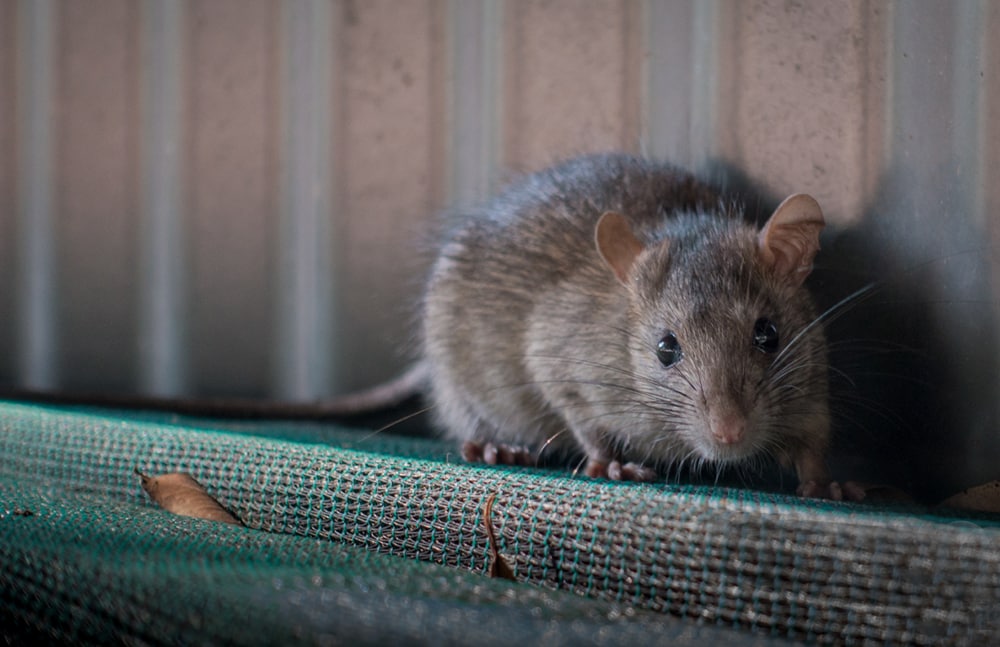
Rodents can infest homes and spread disease. Learn how to practice effective rodent control in and around your home.
Keep pets safe around wildlife
Wild animals can injure or spread germs to pets.
- Keep pets on a leash when they're outside in unfenced areas.
- Always supervise pets when outdoors.
- Don't let pets approach or interact with wildlife.
- Don't let pets eat dead wild animals.
- Ask your veterinarian how to protect your pets from diseases like rabies, leptospirosis, and Giardia infection.
Feed birds in your yard safely
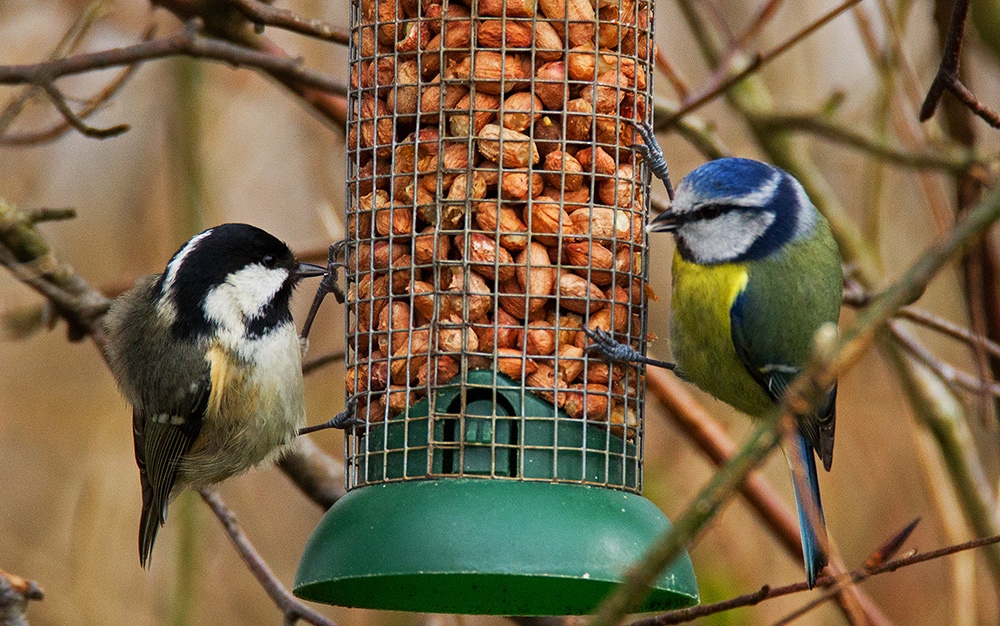
Feeding songbirds in your yard can be relaxing and entertaining. However, wild birds can spread diseases to pets and people. Feeding birds can attract other wildlife to your yard too. Follow the steps below to feed birds safely.
Don't touch wild birds
This includes handfeeding. If you find a sick or dead bird in your yard, do not touch it. Call your state wildlife agency or wildlife rehabilitator. Keep pets away from bird feeders, bird baths, and the surrounding areas.
Wash your hands
Wash your hands after touching bird food, bird feeders, or bird baths.
Clean your bird feeder
Clean your bird feeder and bird bath at least once each month. If they get dirty, you might need to clean them more often. Clean and refill your bird bath weekly or when it's visibly dirty.
Clean feeders outside your house when possible. If you clean it indoors, use a laundry sink or bathtub, and thoroughly clean and disinfect the area right after. Do not clean bird feeders in your kitchen or places where food is prepared or stored.
Follow these steps to clean and disinfect your bird feeder:
- Soak in a diluted bleach solution (9 parts water and 1 part bleach) for at least 10 minutes.
- Rinse with water to remove any remaining bleach solution.
- Let it dry before refilling it.
Safely enjoy wildlife while traveling
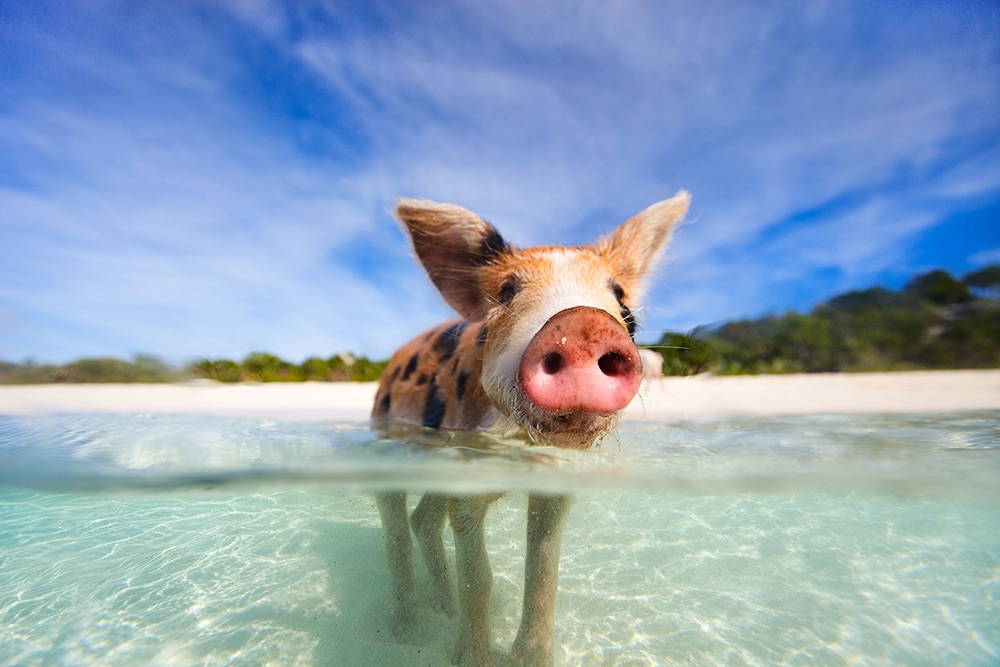
Some popular tourism locations let you interact with wild animals. Many of these experiences are with animals that can carry germs, even if they look healthy and clean. Some attractions can even harm the animals. Some examples of wildlife attractions that can be unhealthy for you and the animal are:
- Riding elephants: Elephants can carry the germs that cause tuberculosis. Elephants can also become aggressive without warning.
- Swimming with pigs or dolphins: Pigs and dolphins can spread germs to people. You can get sick just by swimming near these animals.
- Holding monkeys: Even monkeys that look healthy can spread germs to people. Monkeys can carry herpes B virus, monkeypox, tuberculosis, Ebola, and simian immunodeficiency virus.
- "Skin-cleaning" fish: Fish and their habitats (whether wild or domesticated) can have germs like Salmonella and Aeromonas
- Petting large cats like cheetahs, leopards, tigers, or lions: Big cats can become aggressive.
Enjoying wildlife attractions is part of a fun vacation. However, it's important to research the organization before visiting; some places that call themselves sanctuaries are not actually safe or healthy environments for wildlife or for you. Typically, the organizations that are safest for people and animals are organizations that:
- Don't let you touch or feed wild animals.
- Touching or feeding wild animals, even those that are used to people, can be stressful for the animal. When animals are stressed, they are more likely to become aggressive or get sick.
- Touching or feeding wild animals, even those that are used to people, can be stressful for the animal. When animals are stressed, they are more likely to become aggressive or get sick.
- Have rules about interacting with the animals and provide plenty of space between you and the animals.
Prevent bites and scratches
Bites and scratches from wild animals can cause injury and spread germs, even if the wound does not seem deep or serious. Keeping your distance from wild animals is the best way to prevent bites and scratches.
What to do if you are bitten or scratched by a wild animal
Wash bites and scratches
Wash wounds with warm soapy water immediately.
Seek medical attention, especially if
- The animal looks sick or is acting unusual.
- The wound or injury is serious (uncontrolled bleeding, unable to move, extreme pain, muscle or bone is showing, or the bite is over a joint).
- The wound or site of injury becomes red, painful, warm, or swollen. This is especially important if the person bitten is younger than 5 years old, 65 or older, a pregnant woman, or has a weakened immune system.
- It has been more than 5 years since your last tetanus shot.
Talk to a healthcare provider about whether you need a rabies shot.
Snake bites
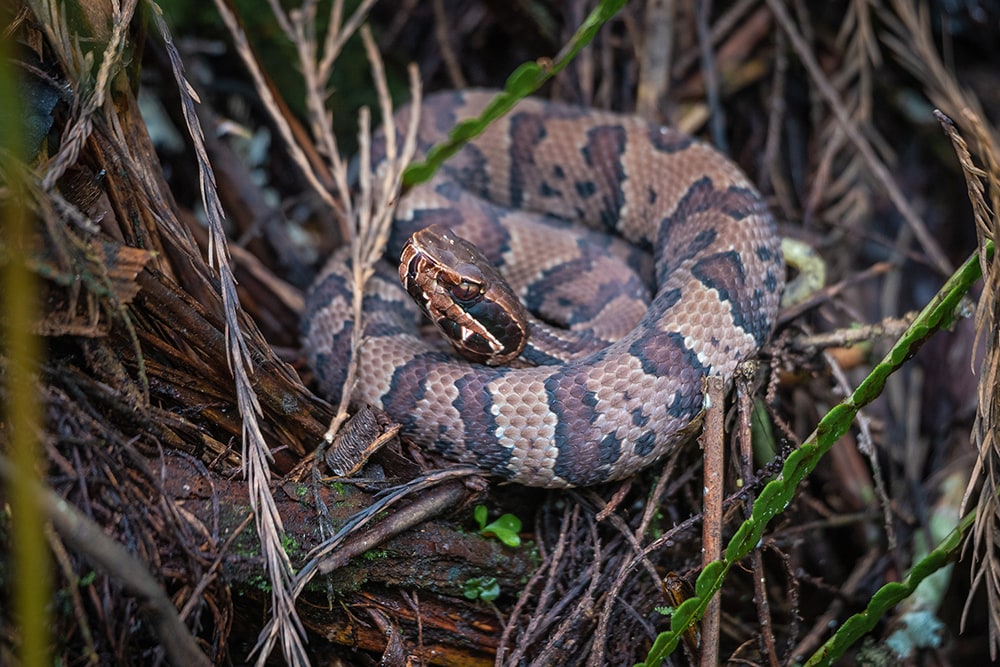
Snakes are important for a healthy environment. They eat rodents that spread germs and ticks, and some nonvenomous snakes even keep venomous snakes away from your yard. Most snakes are not venomous. People and pets who are bitten by snakes, even venomous ones, usually survive. However, you should always seek medical attention for snake bites.
Snakes bite only when they feel threatened or trapped. Stay safe by leaving snakes alone and giving them space.
Prevent snake bites at home
- If you see a snake in your home, call animal control to remove it. Don't try to remove or trap it yourself.
- Note the size, shape, and color of any snakes you see. Contact a wildlife professional if you're concerned about the snake being venomous.
- Keep an eye on children and pets when they are playing outside.
- Prevent rodent infestations around your home and remove brush or log piles from your yard. Rodents can attract snakes.
Prevent snake bites outside
- Watch where you step, especially if you are not on a path, or if there are logs, fallen trees, water, or other places where snakes can hide.
- Don't let pets put their faces into logs or thick bushes where snakes might hide.
- If you see a snake, keep your pets away from it, and slowly walk around it. Give it plenty of space.
- Learn which venomous snakes live in your area and how to identify them.
What to do if you are bitten by a snake
- Try to remember what the snake looked like (size, color, head shape).
- Move away from the snake. Keep pets and other people away from it.
- If you are close to help, wash the wound with soap and water immediately and contact a medical professional.
- If you are not close to help:
- Remain calm and still if possible. Keep the area of the bite below heart level by sitting or lying down. This will slow the spread of venom if the snake is venomous.
- Get to a doctor as soon as possible. Have someone call 911.
- If you are alone, wash the wound and carefully cover it. Walk slowly to the nearest area where you can reach help or call 911.
- Remain calm and still if possible. Keep the area of the bite below heart level by sitting or lying down. This will slow the spread of venom if the snake is venomous.
- Don't chase or try to kill the snake. If the snake feels threatened it might try to bite again.
- Don't use a tourniquet or try to suck the venom out of the wound. This can make the injury worse.
What to do if your pet is bitten by a snake
- Move your pet away from the snake. Don't chase the snake away or kill it.
- Try to remember what the snake looked like (size, color, head shape).
- Try to keep your pet calm.
- If you are close to help, take your pet to a veterinarian right away.
- If you are not close to help:
- Carry your pet if possible. Carrying your pet will help slow the spread of venom.
- If you can't carry your pet, wash the wound, keep it dry, and cover it. Walk slowly with your pet to the nearest area where you can get them to a vet.
- Carry your pet if possible. Carrying your pet will help slow the spread of venom.
How to keep wildlife healthy
The health of people, animals, and the environment are closely connected. Keeping wildlife healthy helps keeps you and your pets healthy.
Be responsible while outdoors
- Keep pets on a leash while outdoors in unfenced areas. Pets can harm wild animals.
- Don't feed or leave food outside for wildlife. When people feed or come in close contact with wild animals repeatedly, those animals can lose their fear of humans. This can cause wild animals to hurt people or pets or get themselves hurt while searching for food. Feeding wild animals can also change their natural migration patterns or behavior. Feeding songbirds is okay.
- Protect wildlife in national parks and local recreational areas by staying on trails and following visitor guidelines, including disposing of trash properly. Leaving trash behind encourages animals to spend time in areas where people are visiting.
Leave orphaned, injured, and abandoned wildlife alone
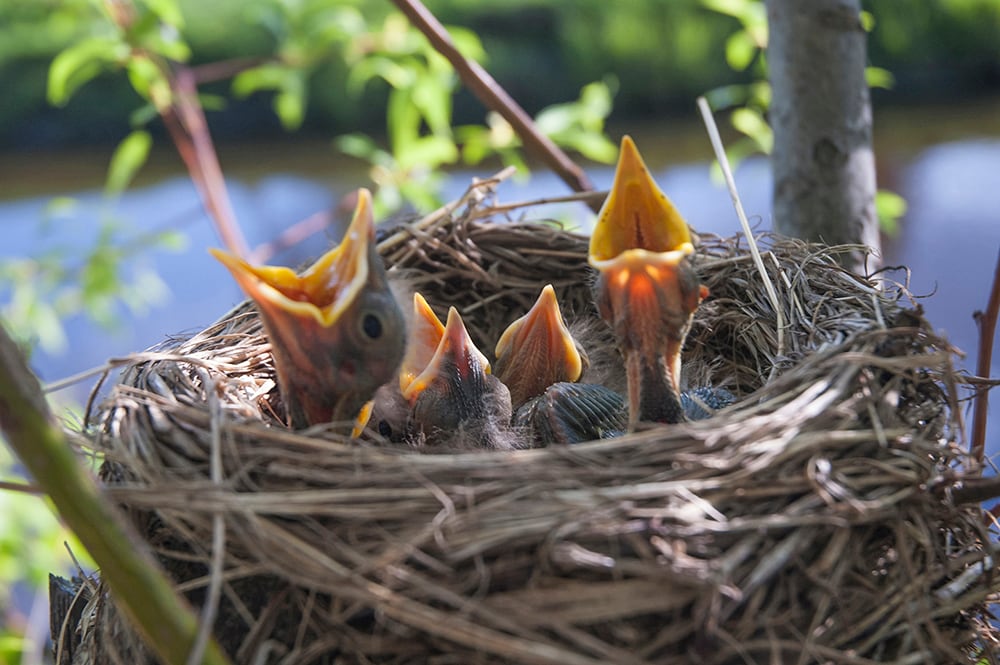
Don't touch animals that look injured or abandoned. When you try to help animals that look orphaned or abandoned, you could just be causing them harm.
- Most baby animals left alone are not orphaned or abandoned. Usually, their parent is nearby. Many animals leave their babies for hours or even days at a time. Parents might leave their babies to search for food or hide the babies from predators.
- Baby birds often spend their first few days out of the nest on the ground. They didn't fall out of the nest. Instead, they are learning how to fly and survive on their own. Parents are usually still close by during this time.
- Many injured animals heal on their own. You can cause more harm if you try to help. If an animal is badly injured or looks very sick, you should contact a wildlife rehabilitator or state wildlife office that will connect you with a rehabilitator.
- Don't adopt a wild animal or bring it into your home. This can make the animal dependent on humans, which lowers its chances for survival in the wild. In addition, inappropriate food or medicine could harm the animal.
Don't release unwanted pets outdoors
If you don't want your pet anymore, don't release it outdoors. Releasing pets isn't good for the animal or the environment. Most pets released outdoors will die, and some can threaten natural wildlife populations.
Find a new home for your pet:
- Consider giving your pet to another experienced pet owner.
- Contact a nearby pet store for advice on rehoming your pet.
- Contact a local pet rescue group to see if they can help rehome your pet.
- Contact a local aquarium or zoo to see if they would accept your pet.
Resources
Staying healthy around wildlife
- Outdoor Safety—Winter Weather
- Rabies (For Kids)
- Bats and Rabies
- Venomous Snakes
- How to Prevent or Respond to a Snake Bite
- Hunting and Brucellosis
- Ticks
